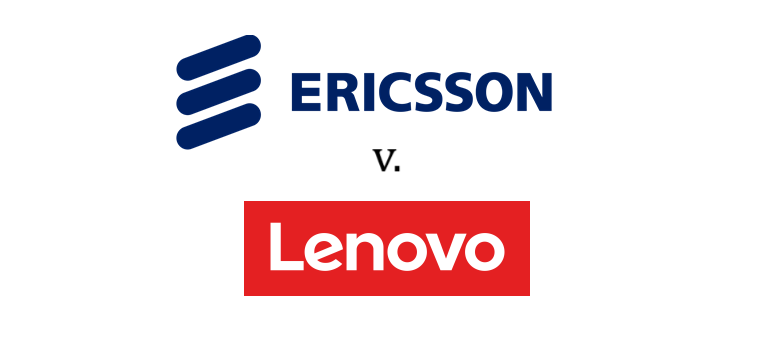Context: In the multijurisdictional dispute between Ericsson and Lenovo that started last fall, Ericsson wants to stop infringements in different jurisdiction and in parallel is pursuing certain FRAND-related claims in the Eastern District of North Carolina to have its related positions blessed. Lenovo, however, believes the High Court of Justice in London should set a global rate, and is trying ever more procedural maneuvers to get there (February 13, 2024 ip fray article). One of them is a motion for an antisuit injunction from the U.S. court, which was already brought in late December (December 30, 2023 ip fray article) to stop the ongoing enforcement of Ericsson’s Brazilian and Colombian 5G standard-essential patent (SEP) injunctions.
What’s new: Judge Terrence W. Boyle denied Lenovo’s motion on Tuesday (February 13, 2024) and published it on the docket a day later. The reasoning follows the same logic as Judge Rodney Gilstrap’s denial of a somewhat similar motion by Apple (also against Ericsson) in 2022: declaratory judgment on FRAND terms by a U.S. court doesn’t necessarily result in a binding agreement (a major different from the 2012 Microsoft v. Motorola action where that would have been the case). But Ericsson, Lenovo or both can decline to enter into a global patent cross-license, the U.S. case isn’t dispositive of foreign infringement lawsuits. As suggested by Ericsson’s lawyers, Judge Boyle treated Lenovo’s motion not merely as a motion for a temporary restraining order (TRO), but given that there was full briefing and a hearing, he proceeded directly to the denial of a motion for a preliminary injunction (PI).
Direct impact: The denial does not come as a surprise, and not just because ip fray was also unconvinced of the prospects of that motion but much more so because Judge Boyle would likely have ruled far sooner if he had believed Lenovo was entitled to extraordinary emergency relief. An order on a PI motion is appealable, and ip fray believes that Lenovo, which appears to leave no stone unturned, will indeed appeal (barring a settlement). In the meantime, Ericsson can continue to enforce its SEP PIs in Brazil and Colombia.
Wider ramifications: While Lenovo’s motion failed for the fact that the U.S. case won’t necessarily put the entire dispute to rest, Judge Boyle’s reasoning as well as the basic outcome suggest that the rather permissive approach to antisuit injunctions by the Fifth and Ninth Circuits is not in the U.S. mainstream. Moreover, the part about FRAND shows that U.S. courts increasingly consider it a two-way street and decline to give implementers leverage over SEP holders. Observers have also interpreted recent SEP damages rulings accordingly.
Considering that U.S. courts often rule on TRO motions on the same day, it’s unusual that this one took a month and a half to be resolved. Judge Boyle treated it as a PI motion (in order to avoid having to deal with a rehash of the same arguments in a PI briefing process after a TRO decision), but it’s also unusual for a PI motion to be under advisement for about a month after the hearing. Presumably, Lenovo failed to convince him of an urgent need and meritorious case for intervention, so he decided to take his time.
The passage of time has an interesting evidentiary effect: the fact that Lenovo hasn’t accepted Ericsson’s offer despite continued enforcement in Brazil and Colombia shows that the alleged harm is not quite as irreparable as Lenovo claimed.
There are various typos in the order (such as “preliminary enjoin” instead of “preliminarily enjoin”), but it is otherwise an extremely well-written one. It explains in simple terms what the issues are and what the parties’ arguments were. It’s easily in the top 10% of U.S. court orders in terms of explanatory quality:
Lenovo’s motion did overcome the very first hurdle, which is whether the parties are substantially the same. The court could have held it against Lenovo that its Chinese parent company hasn’t joined the U.S. proceedings and that Lenovo took contradictory positions on the role of its U.S. entity, but that would have been harsh.
Instead, Judge Boyle focused on the pragmatic aspect of whether or not the U.S. ruling will terminate the global dispute including the Latin American infringement actions at issue. It won’t, and the order also notes that U.S. courts aren’t there to just provide a party with a negotiating tool.
Judge Boyle doesn’t necessarily disagree with the Ninth Circuit decision in Microsoft v. Motorola, but the difference is that back then the U.S. FRAND rate was going to result in a global patent license agreement, and a licensee doesn’t infringe, so there was a clear path to the withdrawal of all foreign infringement actions.
That’s a number of L words now, but it really seems that Lenovo prefers lawyering over licensing. Its lawyers try long shot after long shot. Justice Richard Meade is known to be very pragmatic. That’s why Lenovo presumably won’t get help from the U.S. or the UK.

